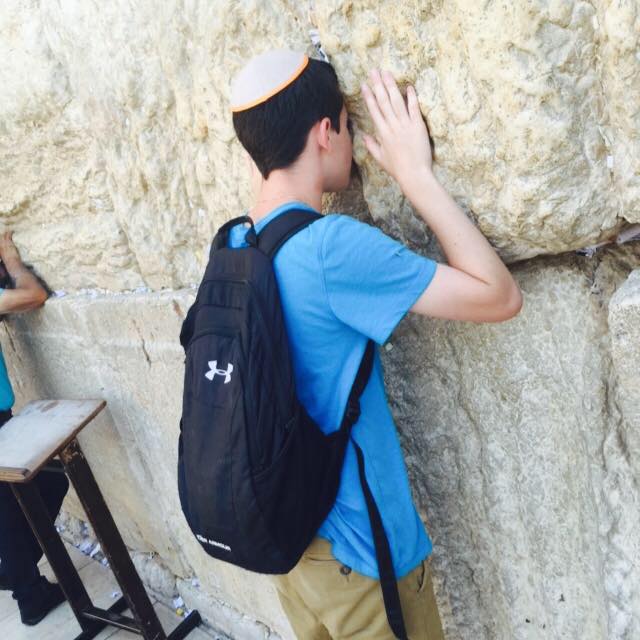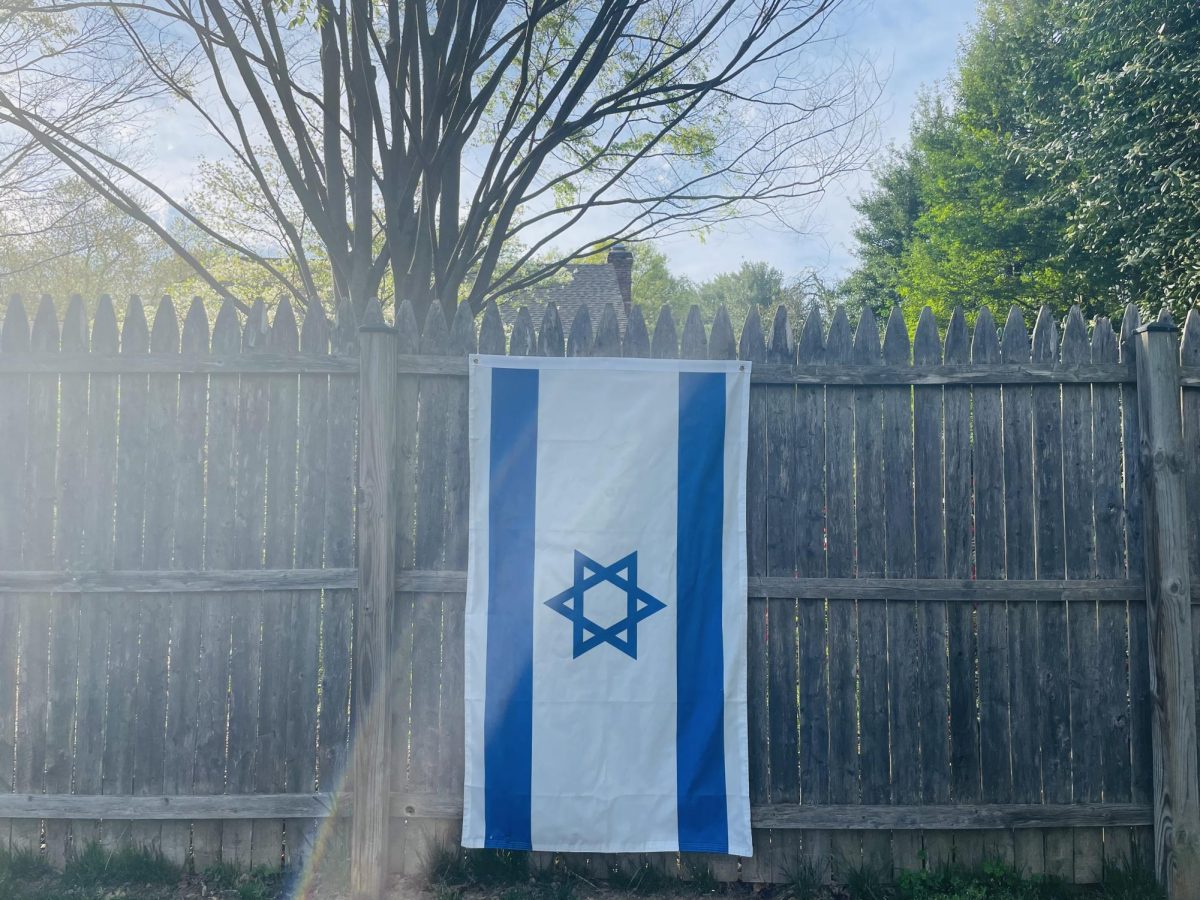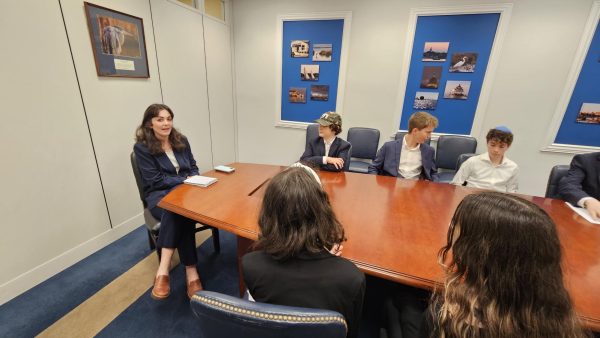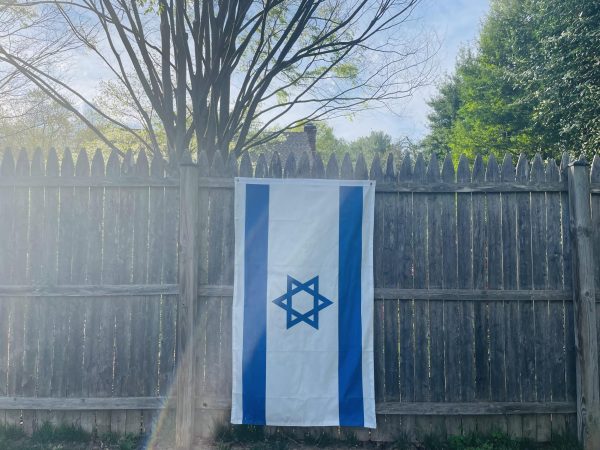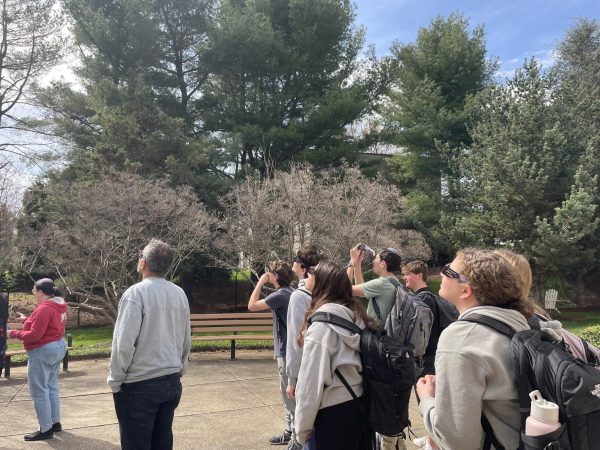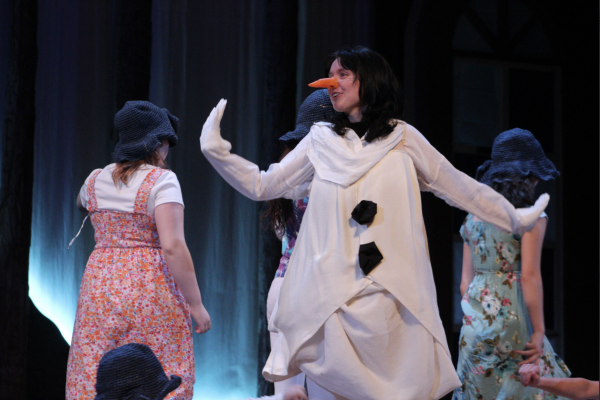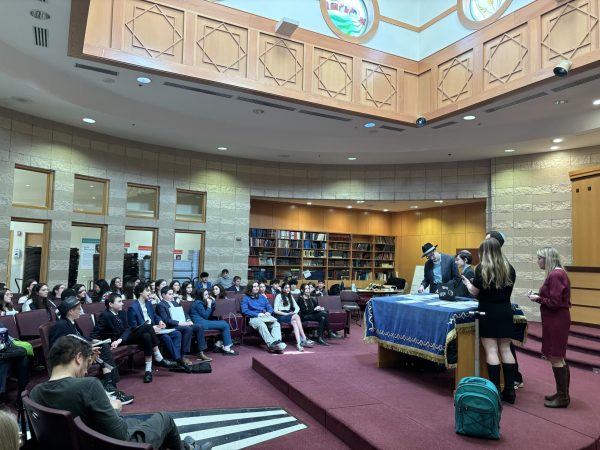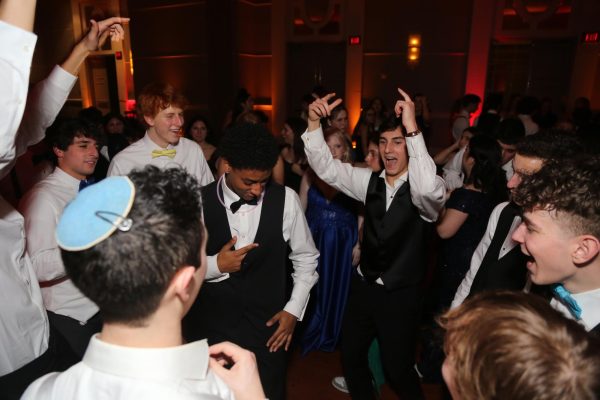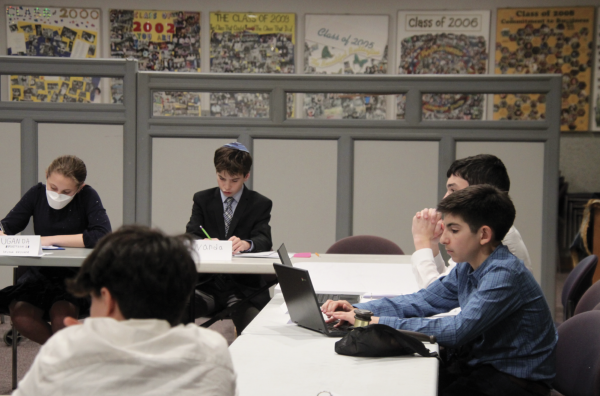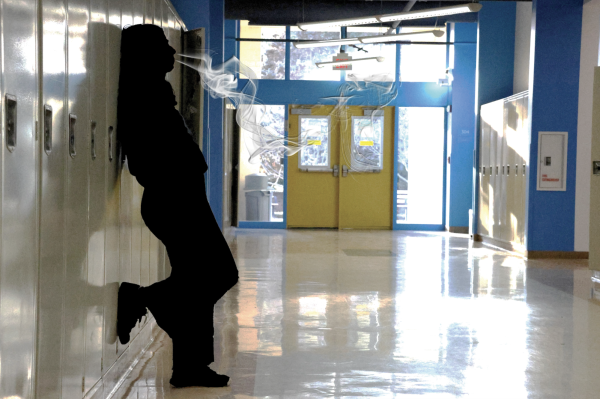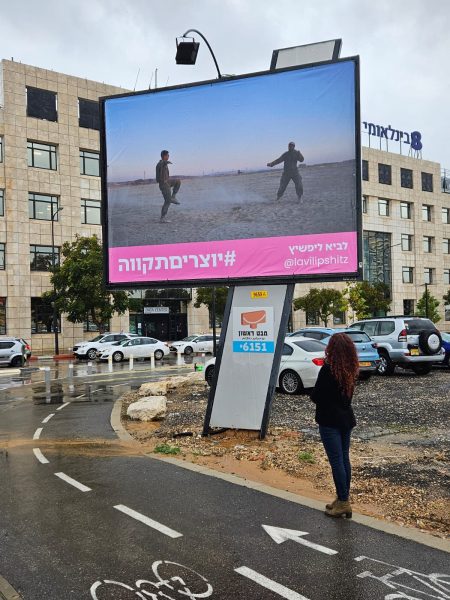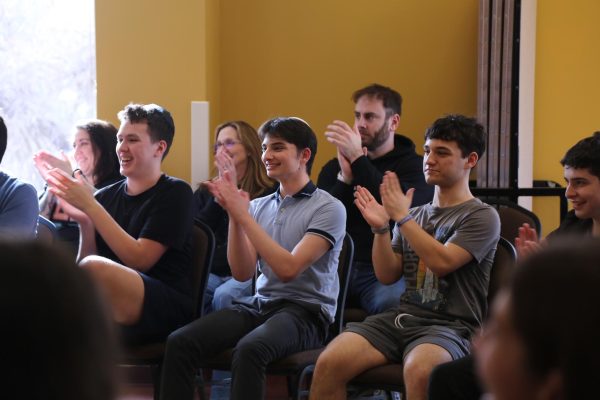Students React to Recent Terror Attacks in Israel
Sophomore Justin Marks prays by the Kotel. He recently made this photograph his Facebook profile picture to show his support for Israel.
October 29, 2015
Many CESJDS students wore blue and white clothing on Monday, Oct. 19 to show support for Israel during the current wave of terrorist attacks devastating the country.
The initiative was sparked by a Facebook event created by Hebrew Academy sophomore Eliana Lebson. The event, whose description read “wear blue and white on Monday to show your support for Israel! Share this event with your friends so everyone is doing it,” tallied well over five thousand RSVPs.
This was not the first time social media was used by JDS students to show support for Israel. Sophomore Justin Marks recently changed his profile picture to one of him praying at the Western Wall in Jerusalem last summer, when he traveled to Israel through an NCSY summer program for teenagers.
“I feel very connected to Israel so I feel like I need to express my support due to what is going on,” Marks said. “I think doing things like changing my profile picture are important because people really don’t understand what Israel is like and what is really going on thanks to biased media coverage.”
Senior Ariela Diamond decided to be more proactive in her support of Israel. Diamond, along with sophomore Shira Graubart and freshman Talia Shemony, attended a pro-Israel rally on Sunday, Oct. 25 at the White House.
Diamond, who considers herself a “strong supporter of Israel” in part because she has a sister serving in the Israeli military, said she was a bit surprised by the scarcity of JDS students at the rally.
Similarly, Graubart, who read a prayer for Israel during Kabbalat Shabbat on Oct. 16, believes that JDS, as a Jewish institution which includes Ahavat Yisrael in it’s mission statement, can do more in terms of generating support for Israel.
“As a Jewish school we are learning how to live a Jewish life and through that we should therefore be supporting Israel,” Graubart said. “I do not think that the school is necessarily doing this.”
Graubart added that keeping up with the current events in Israel is also crucial because it enables JDS students to teach others who lack a Jewish education about the situation.
Head of School Mitchel Malkus reiterated the importance of education in his October newsletter. He emphasized that JDS must prepare students “for the onslaught of anti-Israel and anti-Semitic sentiments they will face on college campuses” so that students can voice their opinions in an informed manner.
“Beginning in 7th grade, students cover trends and movements to counter injustice against others in their general history classes,” Malkus wrote. “Our 10th grade Modern Jewish history curriculum includes the study of the worst anti-Semitic acts in recent history, both in terms of the Shoah, and anti-Semitism faced by Jews in America today. In 11th grade students take the History of Modern Israel course which also addresses anti-Semitism as it relates to Israel and its founding.”
However, Marks still feels that students are not presented with enough opportunities to learn about Israel and the conflict during their time at JDS, especially since the Arab-Israeli Conflict class is only offered for juniors.
“I think they need to have a lot more programs dedicated to current events in Israel because people really don’t know what is going there,” Marks said. “We are so far away and we should feel as close to Israel as possible.”
According to Jewish History Department Chair Sara Coxe, the lack of modern Israel related courses is due to logistics.
“In order to take a course like Arab-Israeli Conflict or Contemporary Issues in Israel, you need to first take the History of Modern Israel class,” Coxe said. “However, there is really no way to fit this class in before junior year because of other required courses in the grades below.”
Jewish History teacher and Israel engagement chair Aaron Bregman said that students can respond to the situation outside of the classroom. He encouraged students to actively engage in discussions about Israel and the conflict no matter the environment.
“Students should feel obligated to create that dialogue, whether it be in their family or between peers or classes as a whole,” Bregman said.
Bregman believes that JDS is doing a good job of creating that dialogue even though doing so is extremely challenging.
“I feel that because the situation is so nuanced due to the fact [that] we are not really sure what we are dealing with, it is hard to have a real specific dialogue,” Bregman said.
He added that it is difficult to have these types of conversations when there are younger students at the Upper School who “do not understand the larger issue.”
One way that Bregman tried to create a dialogue about the current situation in Israel was by hosting an informal discussion and learning session in which topics such as the roots of the current conflict were discussed.
Bregman used this time to not only moderate a discussion involving many opinions and perspectives but to also share quotes and stories to give students a better understanding of the situation.


